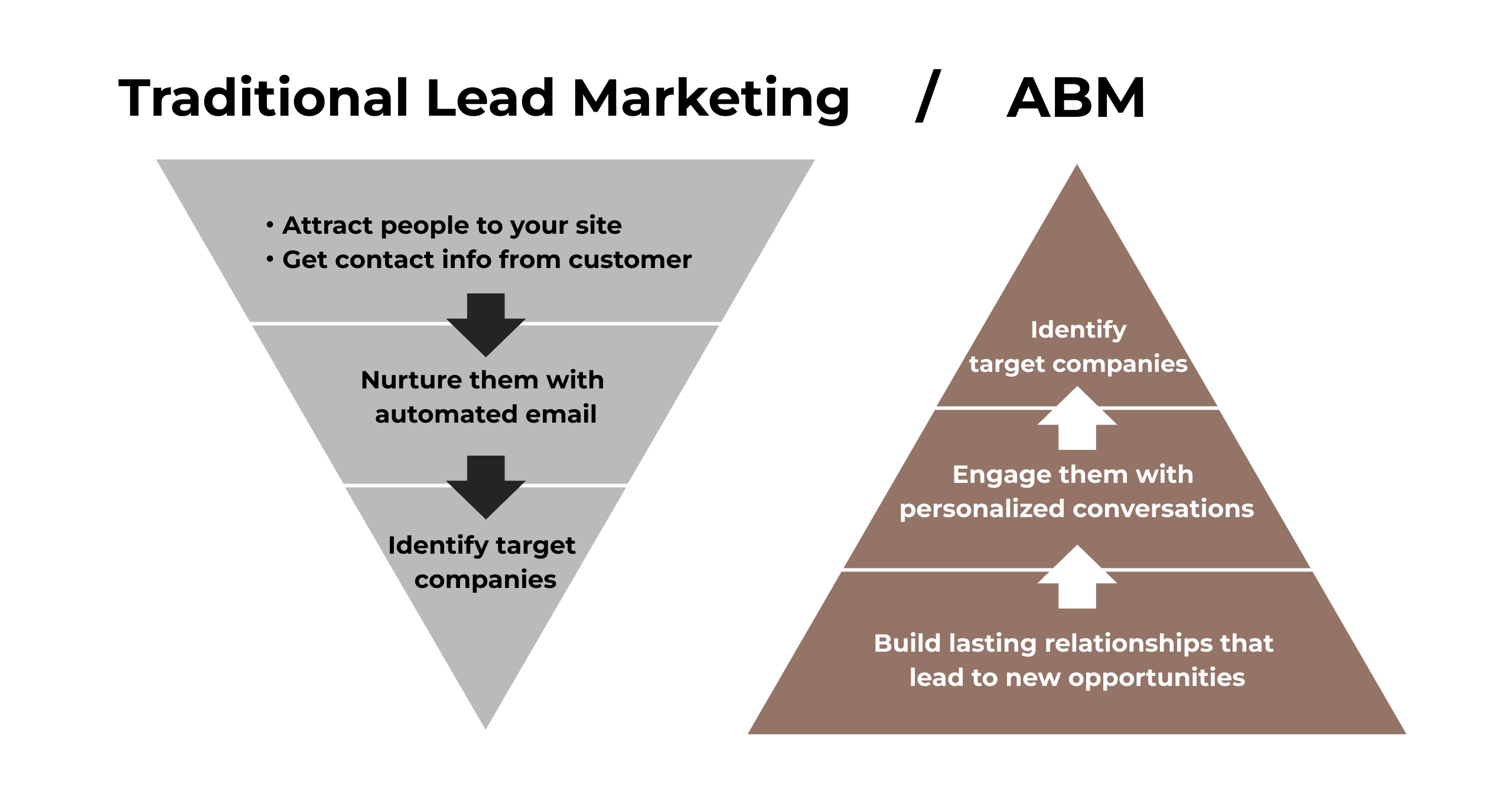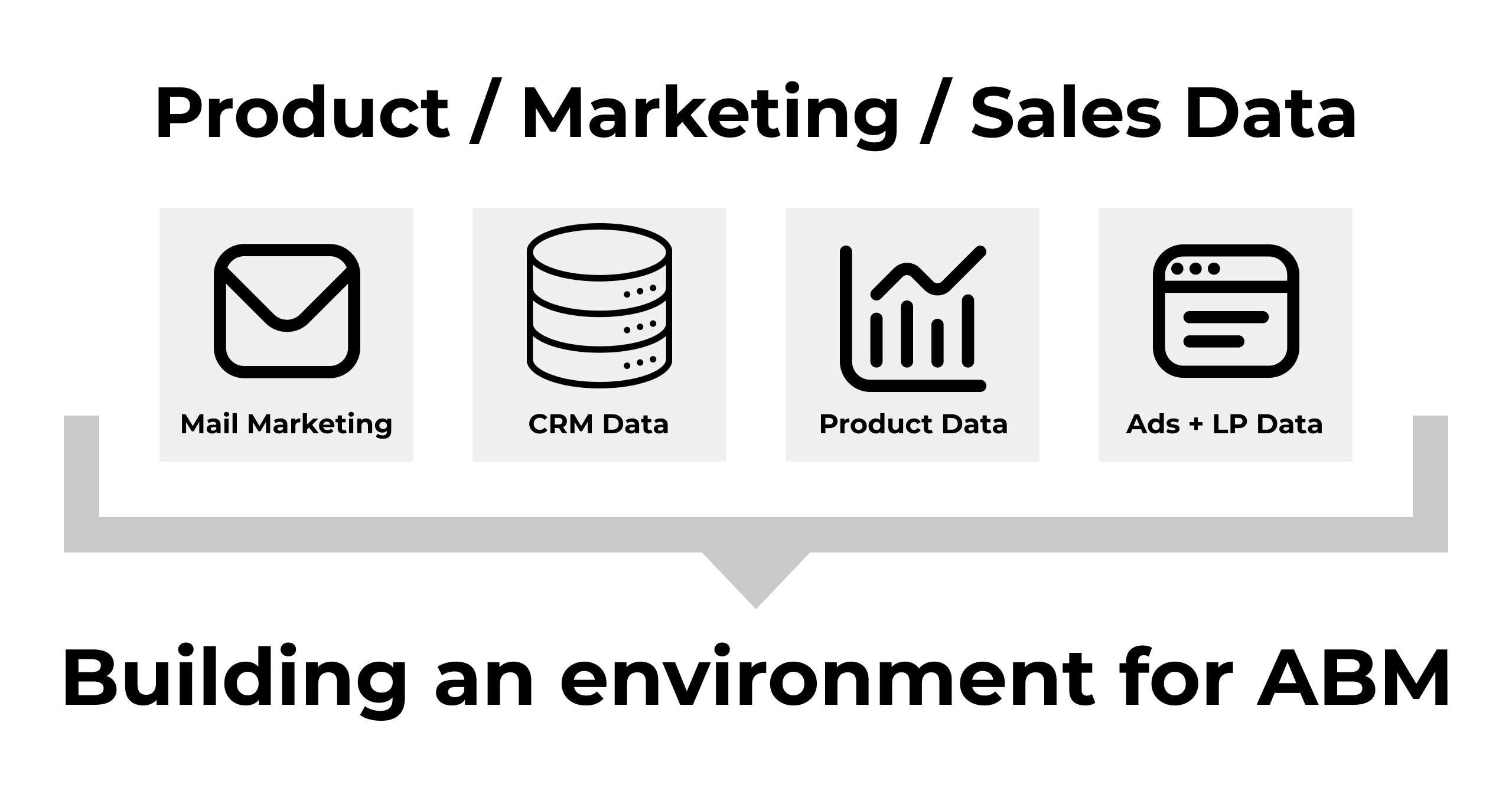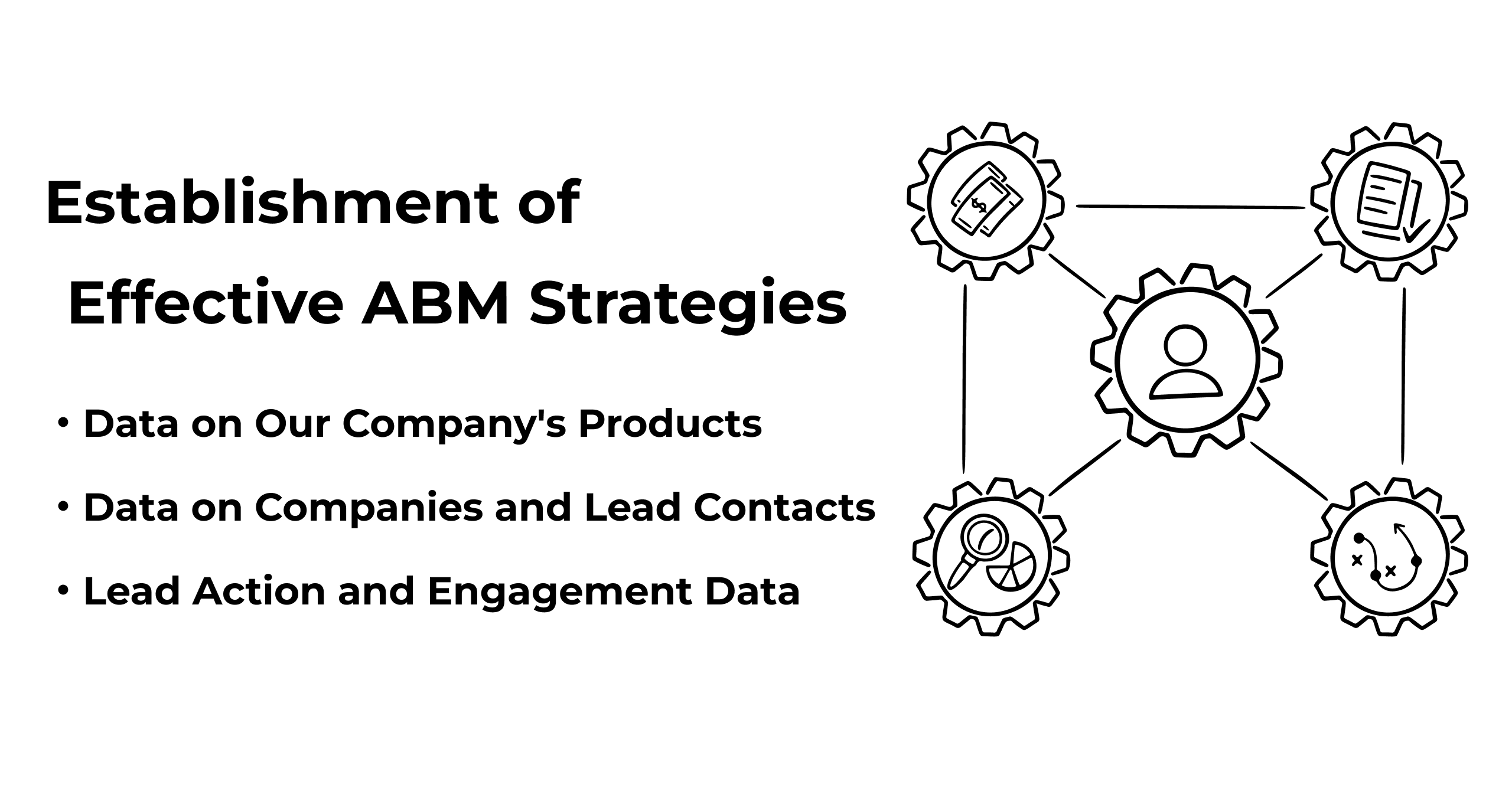Data-Driven ABM Strategy

What is ABM?

Account-Based Marketing, or ABM, is a strategic approach that targets specific companies, organizations, or individuals as lead accounts to maximize sales revenue. Unlike traditional lead-based marketing, which gradually narrows down potential customers, ABM strategically focuses on pre-identified target accounts from the outset.
ABM isn't a one-size-fits-all strategy. By delivering personalized approaches and dynamic content to targeted companies or individuals, ABM aims to deepen relationships with leads and enhance lead quality. Implementing ABM involves setting specific target companies or individuals and providing valuable content or messages that address the challenges and needs of these targets. Therefore, effective ABM initiatives require a centralized management of product and customer data, emphasizing the importance of data design for utilization.

ABM Background and the Role of Data Management Tools
The rise of ABM in recent years can be attributed to the proliferation of tools for data management. The widespread adoption of tools such as Sales Force Automation (SFA), Customer Relationship Management (CRM), and Marketing Automation (MA) enables one-to-one marketing targeting specific leads across various channels. This has significantly impacted marketing and sales activities by allowing centralized management.
Why is Product Data Essential for Deploying ABM?
From the overview of ABM mentioned earlier, it's evident that it is an efficient method. However, personalizing actions for each targeted lead is extremely challenging without creating the right environment. First and foremost, detailed data about your own products must be collected to understand the needs and behavioral patterns of target accounts.
Essential Datasets for Successful ABM Initiatives
The key to the success of ABM initiatives is primarily rooted in data about your own products and customer data. The more this data accumulates, the more it becomes a key factor in maximizing the potential of ABM and executing successful initiatives. The necessary datasets for effective ABM initiatives include:

- Data on Your Own Products: Understanding data related to your company's products or services is the foundation of ABM strategy. Grasping product usage, features, and customer feedback allows the construction of a foundation to make optimal proposals to target accounts.
- Data on Companies and Lead Contacts: In ABM initiatives, data about target leads is indispensable. Managing data about a company's size, industry, decision-makers' positions, interests, etc. enables more effective personalized approaches. However, data accuracy is crucial here, and unclear information can become noise in personalized initiatives.
- Lead Action and Engagement Data: Data on how leads visit your website or react to content is crucial evidence in ABM initiatives. Analyzing the actions and engagement data of specific users allows understanding their interests and preferences, enabling strategic approaches based on this understanding.
As mentioned, the success of ABM initiatives requires thorough preparation. Detailed data collection about your own products and understanding the needs of target accounts form the foundation. Analyzing these data sets meticulously ensures that personalized ABM initiatives result in acquiring unprecedented hot leads.
The Importance of Collaboration Between Marketing and Sales Teams
While emphasizing the importance of data in ABM initiatives, it's crucial to note that this alone isn't enough to maximize the effectiveness of ABM. Similarly, a strong collaboration between stakeholders, such as marketing and sales teams, is required. Without alignment and a shared understanding between departments, there may be discrepancies in utilizing organized data and executing personalized ABM initiatives effectively.
Designing Data-Driven Teams and Establishing a Sustainable Cycle
As mentioned earlier, continuous utilization of product and customer data is indispensable for the success of ABM initiatives. In this regard, the key is for the entire team to act in a data-driven manner. Particularly, centralized data management is of high importance, and creating a mechanism that allows integrated management and easy sharing of internal data among stakeholders is crucial.
Additionally, designing teams for effective utilization of data is essential. Marketing and sales departments need to create an environment where data can be accessed and shared easily to facilitate rapid and accurate actions based on the analyzed data.
In conclusion, ABM initiatives require not only one-time implementation but also a sustainable cycle. To effectively run this cycle, feedback from targeted leads attacked through ABM initiatives needs to be constantly updated for the managed data. Keep this in mind for a successful ABM strategy!
Choose Morph for Your ABM Marketing
In implementing ABM marketing, the data held by each department or individual about products and customers becomes crucial, and this data needs to be in a dataset environment that transcends departments. Morph is an all-in-one tool that can handle everything from data collection to storage and analysis. For example, it allows integration of data about the company's products managed in data warehouses such as BigQuery and importing CRM data from Salesforce / Hubspot.
Furthermore, data processing and aggregation are handled by AI, eliminating the need for SQL or Python knowledge, making data processing, including analysis, possible even for non-IT personnel.
Why not leverage the next-generation solution, Morph, to advance the utilization of data in your field? Morph offers a free plan for you to experience its power. Sign up now and feel the difference!